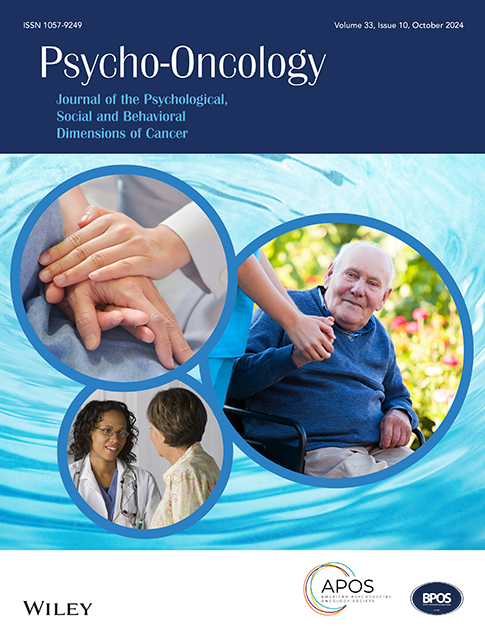Validity and Reliability of a Simplified Chinese Version of Cancer Survivors' Unmet Needs Scale (CaSUN)
Funding: This work was supported by the Cancer Foundation of China (Grant Number CFC-XGB-202102).
ABSTRACT
Objective
To translate Cancer Survivors' Unmet Needs scale (CaSUN) into Simplified Chinese, and to assess the validity and reliability of this translated version among Chinese cancer survivors.
Methods
Following the cross-cultural adaptation guidelines, the original CaSUN scale was translated from English into Simplified Chinese. To enhance the readability and comprehension of each item, a pilot study involving 40 cancer patients was carried out. Subsequently, 324 cancer survivors participating in follow-up appointments at a cancer hospital in Beijing, China completed the Simplified Chinese version of the CaSUN. The scale's validity was assessed through factor analysis. Indices including Satorra–Bentler scaled chi-square to degree of freedom ratio (χ2/df), comparative fit index (CFI), root mean square error of approximation (RMSEA), and standardized root mean squared residual (SRMR) were employed for construct validity. Average variance extracted (AVE) of each category reflected the convergent validity. Reliability was confirmed with both Cronbach's α and Guttman split-half coefficient.
Results
Factor analysis suggested that a three-level hierarchical structure of the CaSUN with four first-order factors, nine second-order factors and all the 35 items assessing unmet need could fit our data well (χ2/df = 2.833, CFI = 0.902, RMSEA = 0.076, SRMR = 0.066), indicating sufficient construct validity for this model. For convergent validity, AVE of each second-order category were greater than 0.5. Regarding reliability, Cronbach's α of the 35 items was 0.968, and the Guttman split-half coefficient was 0.984. Both of these coefficients were higher than 0.8.
Conclusions
The present Simplified Chinese version of CaSUN had good cultural adaptability, appropriate validity and reliability for assessing unmet needs in different cancer survivor groups in Chinese mainland. This Simplified Chinese version of CaSUN can assist health professionals in addressing individual survivor needs and bridge the gap between patients' experiences and their expectations, thereby improving the quality of cancer survivorship care.
Conflicts of Interest
The authors declare no conflicts of interest.
Open Research
Data Availability Statement
The datasets generated during and analyzed during the current study are available from the corresponding author on reasonable request.




